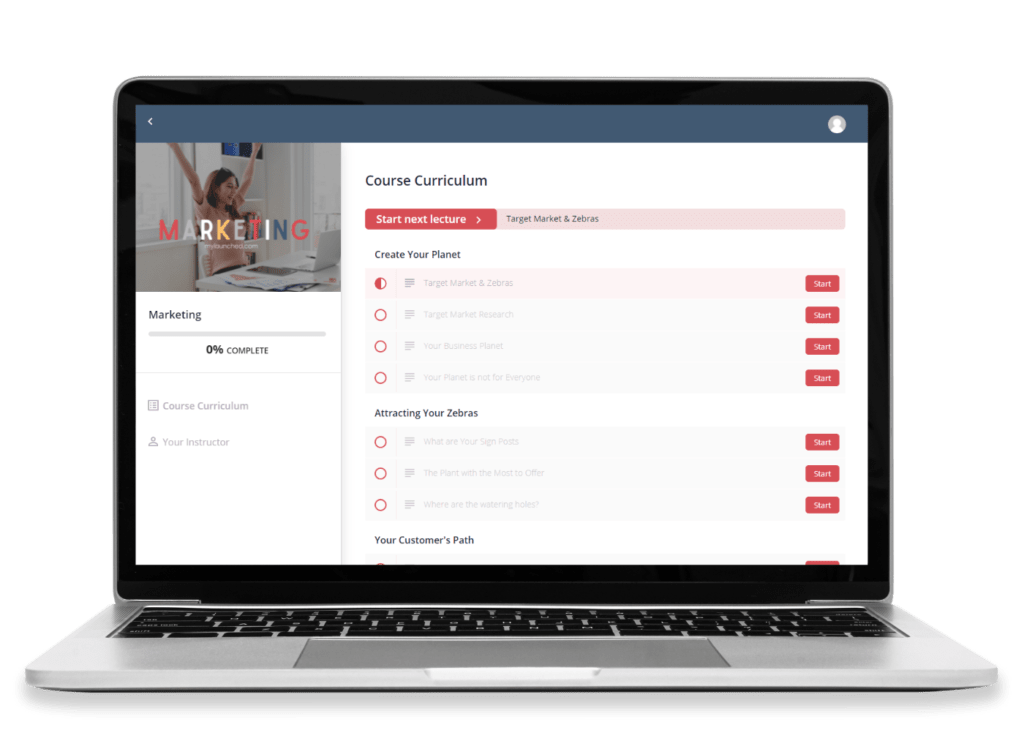Starting a business is not only hard but it is often very confusing. The business education industry throws around so many phrases. If you know, you know (or you try and Google on the sly in the desperate attempt to keep up).
I was really good at nodding and smiling. Let’s make things a little easier for you.
Here are ten business phrases that you will most likely run into as you get ready to launch you business.
.
.
1. Entity
A business entity type is the way that your business is legally organized. Your entity type will affect your taxes, record keeping, and legal liabilities. It will also play a role in how your leadership is organized.
There are five general entity types:
- Sole proprietorship
- Partnership
- C corporation
- S corporation and
- Limited liability company (LLC)
If you are just starting your new business we typically recommend a single member LLC.
.
2. Fiscal Year
An calendar year is January through December. A fiscal year is a one-year period that starts and ends whenever you want. If you are a seasonal business that does most your work in the summertime you might want a fiscal year that starts in October and ends in September. This would give you ability to wrap up your finances at the end of the season. This makes it easier to see how your business did and make plans for the next season. This also gives you the ability to file your taxes at the end of your season instead of worrying about it six months later.
If you don’t know if you need a unique fiscal year in your business, just go with the calendar year.
.
 3. EIN
3. EIN
.
An EIN is an employee identification number.
This number is issued by the IRS and is a like a social security number but for your business. It is used to track of a business’s tax reporting. You will need your EIN open a business bank account, get business financing, file your taxes, etc.
An EIN is free and can be applied for online.
.
4. Target Market
A business’s target market is the specific group of individuals that their advertising is aimed at and their products are typically made for. At Launched we call it this your Zebra (but you can learn about that later).
As a new business you want to identify a very clear and specific target market. We don’t have time to explain all the reasons but but just know: Everyone is not your ideal client.
.
5. Core Product
This one is easy! A business’s core product is its primary promotional item.
A core product is the product or service they are known for. McDonald’s has the Big Mac, Starbucks has coffee. Sure, both businesses have a lot more on their menu. However, most of their marketing goes into training your brain to associate them with their core product.
NOTE: There is a whole portion of the business world that says that a core product is not the product but how the product makes you feel at its core. We aren’t doing that here. We are keeping things simple.
You will learn very quickly that in business that are several meanings for everything. I am 90% it is just some jerk out there stringing words together to try and catch other people off balance. Don’t let it stress you out.
.
6. Chart of Accounts
You know how you log into your online banking and there is a list of your accounts? A chart of accounts is same thing but for business. However, it isn’t found in your online banking, it is in your accounting software. Your chart of account should include all of your accounts (bank, Venmo, credit card, cash) your spending categories, etc.
.
 7. Fixed Expenses
7. Fixed Expenses
Every month in your business you have expenses. Fixed expenses are the expenses that you have to pay no matter what you sell. If you bring in zero dollars there are still things that you have to pay.
These can include: rent, internet, utilities, payroll, insurance, debt payments, etc.
Having low fixed expenses is a great way to start a business.
.
8. Variable Expenses
Each time that you make a sell you have expenses.
Variable expenses are the expenses that you incur only when you sell something. These can be things like: printing a manual, motor oil, contractor labor, fuel in your car, supplies, re-stocking items, etc. You need to know your variable expenses in order to price your goods and services well.
.
9. SEO
SEO stands for search engine optimization.
This is how Google finds your website. You want to increase your SEO as much as possible. There are many things that you can do to increase your SEO they range from adding photos, creating links, having a great keywords, to so much more.
We have an entire class on SEO in our Launch My Business Academy.
.
10. Balance Sheet
Everyone seems to understand the basics of a profit and loss statement, but when it comes to the balance sheet fewer people understand what they are looking at.
Let’s try and remedy that situation.
A balance sheet is a snapshot of your business’s finances on a specific date. A balance sheet will tell you how much debt your company has, if you are bringing in enough revenue to cover the debt, and what type of profit (or equity) you have in your business.
Your balance sheet can help you determine the health and value of your business.
And there you have it!
Ten business phrases that will probably need to know to get your business off to a great start.
Join the Launch My Business Academy!
.



